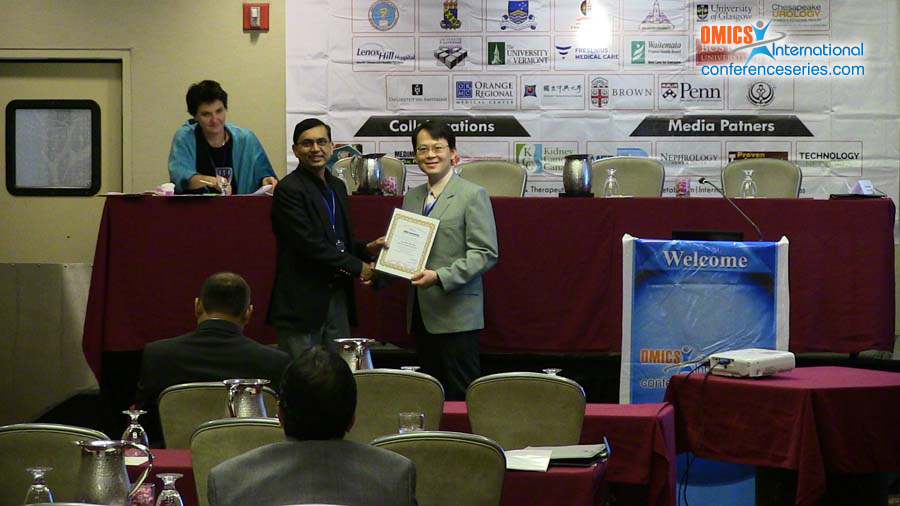
Chia-Wen Kuo
National Chung Hsing University, Taiwan
Title: Extracellular superoxide dismutase with heparin binding domain retards the progression of streptozotocin induced-diabetic nephropathy
Biography
Biography: Chia-Wen Kuo
Abstract
Diabetic nephropathy is the leading cause of end stage renal disease in developed countries throughout the world. The imbalance between the production of reactive oxygen species (ROS) and the antioxidant defense system is the main problem that is responsible for the progression of diabetic kidney disease. In this study, we investigated whether human extracellular superoxide dismutase (hEC-SOD) can prevent diabetic nephropathy in the rat model. Diabetic nephropathy symptoms were induced by intraperitoneal injection with 60 mg/kg streptozotocin (STZ) in male Sprague-Dawley (SD) rats. After daily supplement of rhECSOD (3,200 U/kg/day) for 4 weeks, the serum or urine biochemical markers (glucose, creatinine, blood urea nitrogen, triglyceride, hemoglobin A1c, and microalbuminuria), histological changes, gene expressions (phox47, opn, and gapdh), and protein levels (TGF-β, AT1-R, phospho-p42/p44 MAPK, and p42/p44 MAPK) were determined Results showed that rhEC-SOD administration could reverse SOD activity measured in kidney and diabetic-associated changes, including the fibrosis change, expression of collagen I, transforming growth factor-beta (TGF-β) and angiotensin II receptor 1 (AT1-R), as well as the activation of the intracellular mitogen-activated protein kinase (MAPK) signaling pathway, associating with its inhibition of p42MAPK/p44MAPK (ERK1/2) phosphorylation. Additionally, diabetic nephropathy up-regulated the expression of the phox47 and opn genes, and these changes could also be suppressed. Though the proteinuria did not significantly reduce, treatment with rhEC-SOD ameliorates STZ-induced diabetic nephropathy, leading to reduced death rates, kidney weight/body weight ratio, fibrosis change and. TGF-β1 expression through the down-regulation of ROS/ERK1/2 signaling pathway. We conclude that rhEC-SOD can act as a therapeutic agent to protect the progression of diabetic nephropathy.


